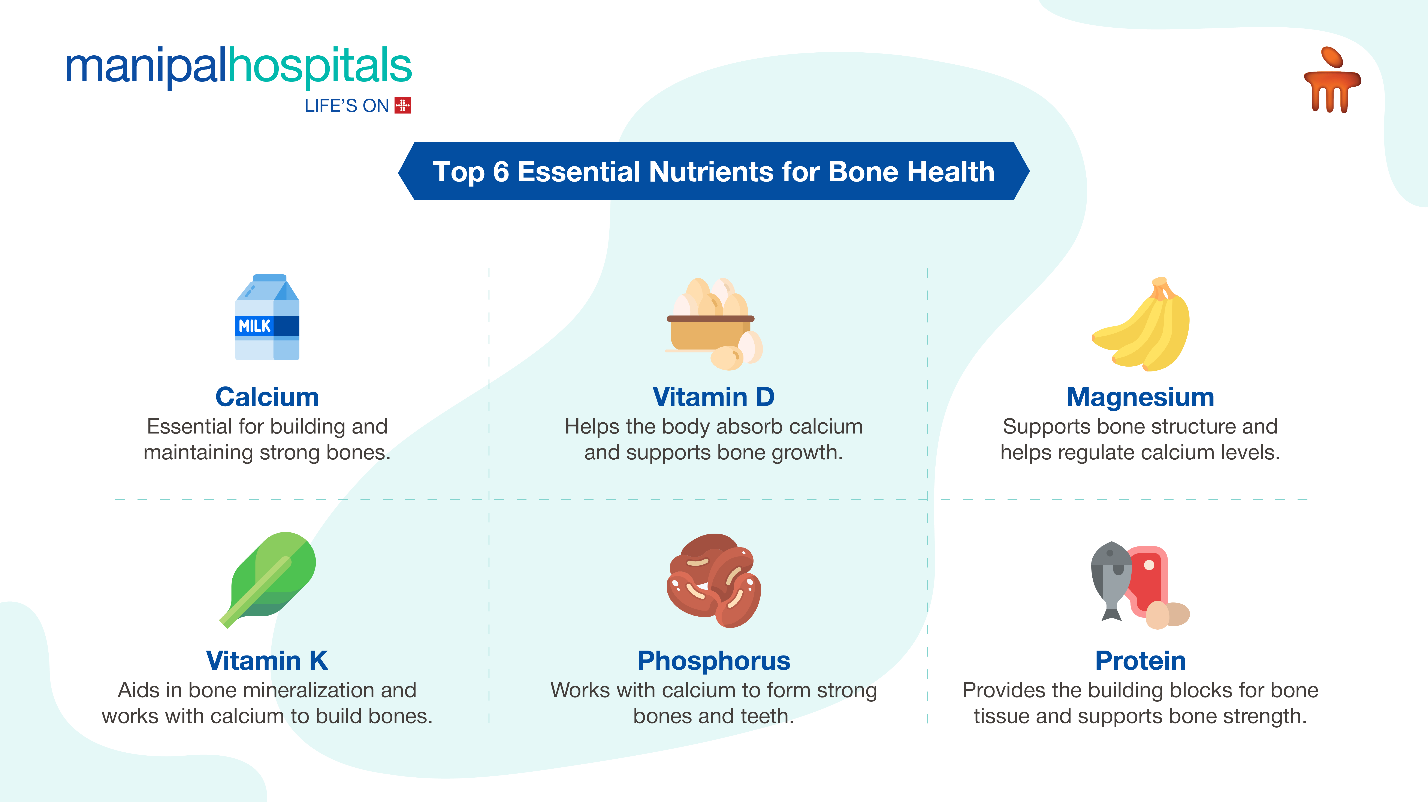
Knee pain is a common complaint that affects people of all ages. It can be caused by various factors, such as injury, arthritis, or general wear and tear. While there are several treatment options available, nutrition plays a crucial role in managing knee pain. A well-balanced diet can help reduce inflammation, promote healing, and improve overall joint health. In this blog, we will discuss the top 5 nutritional tips for knee pain management.
Synopsis
Increase Your Intake of Omega-3 Fatty Acids
Omega-3 fatty acids are essential nutrients that have potent anti-inflammatory properties. They can help reduce inflammation and pain in the knees, making them an important part of a diet for knee pain. Some of the best sources of omega-3 fatty acids include:
-
Fatty fish like salmon, sardines, and mackerel
-
Flax seeds and chia seeds
-
Walnuts
-
Fortified foods like eggs and milk
Incorporating these foods into your diet can help alleviate knee pain and improve joint health.

Eat a Rainbow of Antioxidant-Rich Foods
Antioxidants are powerful compounds that help protect your cells from damage caused by harmful molecules called free radicals. They can also help reduce inflammation in the body, making them an important part of knee pain treatment at home. Some of the best sources of antioxidants include:
-
Colourful fruits like berries, cherries, and citrus fruits
-
Leafy green vegetables like spinach and kale
-
Nuts and seeds
-
Dark chocolate
Eating a variety of antioxidant-rich foods can help boost your body's natural defences and serve as an effective knee pain remedy. Incorporating these foods for knee pain into your diet can significantly reduce knee pain and improve overall joint health.
Consider Glucosamine and Chondroitin Supplements
Natural compounds, glucosamine and chondroitin are found in the body. They help maintain the health of the cartilage and joint function. They are often taken as joint health dietary supplements to help reduce knee pain and improve mobility. While they can be found in some foods like shellfish and bone broth, it may be difficult to get enough through diet alone.
If you are considering taking a glucosamine or chondroitin supplement, be sure to talk to your doctor first. They can help you determine the right dosage and ensure that it is safe for you to take.
Stay Hydrated
Staying hydrated is essential for maintaining healthy joints and reducing knee pain. Water helps lubricate the joints and keep the cartilage soft and pliable. When you are dehydrated, your body may not be able to produce enough synovial fluid, which can lead to increased friction and wear and tear on the joints.
Aim to drink at least 8 glasses of water per day, and more if you are physically active or live in a hot climate. You can also get hydration from other sources like herbal teas, fruits, and vegetables.
Consult our orthopaedic doctors in Pune if you need treatment for knee joint pain relief.
Maintain a Healthy Weight
Carrying excess weight can put extra stress on your knees, leading to pain and inflammation. Losing weight can help reduce the load on your joints and alleviate knee pain. In fact, studies have shown that even a modest weight loss of 5-10% can significantly improve knee pain and function.
To maintain a healthy weight, focus on eating a balanced diet that includes plenty of fruits, vegetables, whole grains, and lean proteins. Avoid processed and high-calorie foods, and aim to get regular exercise most days of the week.
Consult our orthopaedic hospital in Pune if you need to know more about foods for knee pain.
|
Myth or fact: You require complete rest when experiencing knee pain Myth! A common belief is that resting is the best approach when experiencing knee pain. While rest is important, engaging in low-impact exercises can actually help strengthen the muscles around the knee and improve flexibility. Activities such as swimming or cycling can be beneficial for those looking to manage knee pain effectively. |
FAQ's
Avoiding processed foods, sugary drinks, and red meat can reduce inflammation in the body. These types of food may worsen knee pain by promoting weight gain and causing inflammatory responses.
Staying well-hydrated keeps synovial fluid levels up in your joints. This fluid lubricates the joints to reduce friction and minimise pain.
Yes, incorporating anti-inflammatory foods like turmeric, ginger, and green tea into your diet can serve as natural remedies for managing knee pain in older adults.
Excessive weight puts extra pressure on the knees. Maintaining a healthy weight through a balanced diet helps alleviate pressure on your knees and reduces pain.
A well-balanced vegetarian diet rich in fruits, vegetables, whole grains, nuts and seeds can lower inflammation levels due to its high nutrient content. This dietary approach might be effective as a part of your overall strategy to manage knee pain.



















 5 Min Read
5 Min Read


















